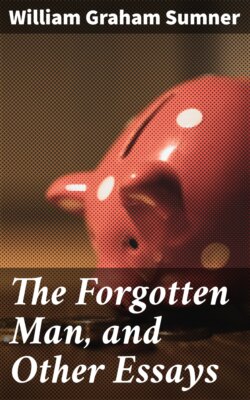Читать книгу The Forgotten Man, and Other Essays - William Graham Sumner - Страница 38
На сайте Литреса книга снята с продажи.
(A) That Infant Industries can be Nourished up to Independence and that they then Become Productive.
Оглавление109. I know of no case where this hope has been realized, although we have been trying the experiment for nearly a century. The weakest infants to-day are those whom Alexander Hamilton set out to protect in 1791. As soon as the infants begin to get any strength (if they ever do get any) the protective system forces them to bear the burden of other infants, and so on forever. The system superinduces hydrocephalus on the infants, and instead of ever growing to maturity, the longer they live, the bigger babies they are. It is the system which makes them so, and on its own plan it can never rationally be expected to have any other effect. (See further, under the next fallacy, §§111 ff.)
110. Mill20 makes a statement of a case, as within the bounds of conceivability, where there might be an advantage for a young country to protect an infant industry. He is often quoted without regard to the limitation of his statement, as if he had affirmed the general expediency of protection in new countries and for infant industries. It amounts to a misquotation to quote him without regard to the limitations which he specified. The statement which he did make is mathematically demonstrable.21 The doctrine so developed is very familiar in private enterprise. A business enterprise may be started which for some years will return no profits or will occasion losses, but which is expected later to recoup all these. What are the limits within which such an enterprise can succeed? It must either call for sinking capital only for a short period (like building a railroad or planting an orange grove), or it must promise enormous gains after it is started (like a patented novelty). The higher the rate of interest, as in any new country, the more stringent and narrow these conditions are. Mill said that it was conceivable that a case of an industry might occur in which this same calculation might be applied to a protective tax. If, then, anybody says that he can offer an industry which meets the conditions, let it be examined to see if it does so. If protection is never applied until such a case is offered, it will never be applied at all. A thing which is mathematically conceivable is one which is not absurd; but a thing which is practically possible is quite another thing. For myself, I strenuously dissent from Mill’s doctrine even as he limits it. In the first place the state cannot by taxes work out an industrial enterprise of a character such that it, as any one can see, demands the most intense and careful oversight by persons whose capital is at stake in it, and, in the second place, the state would bear the loss, while it lasted, but private interests would take the gain after it began.
